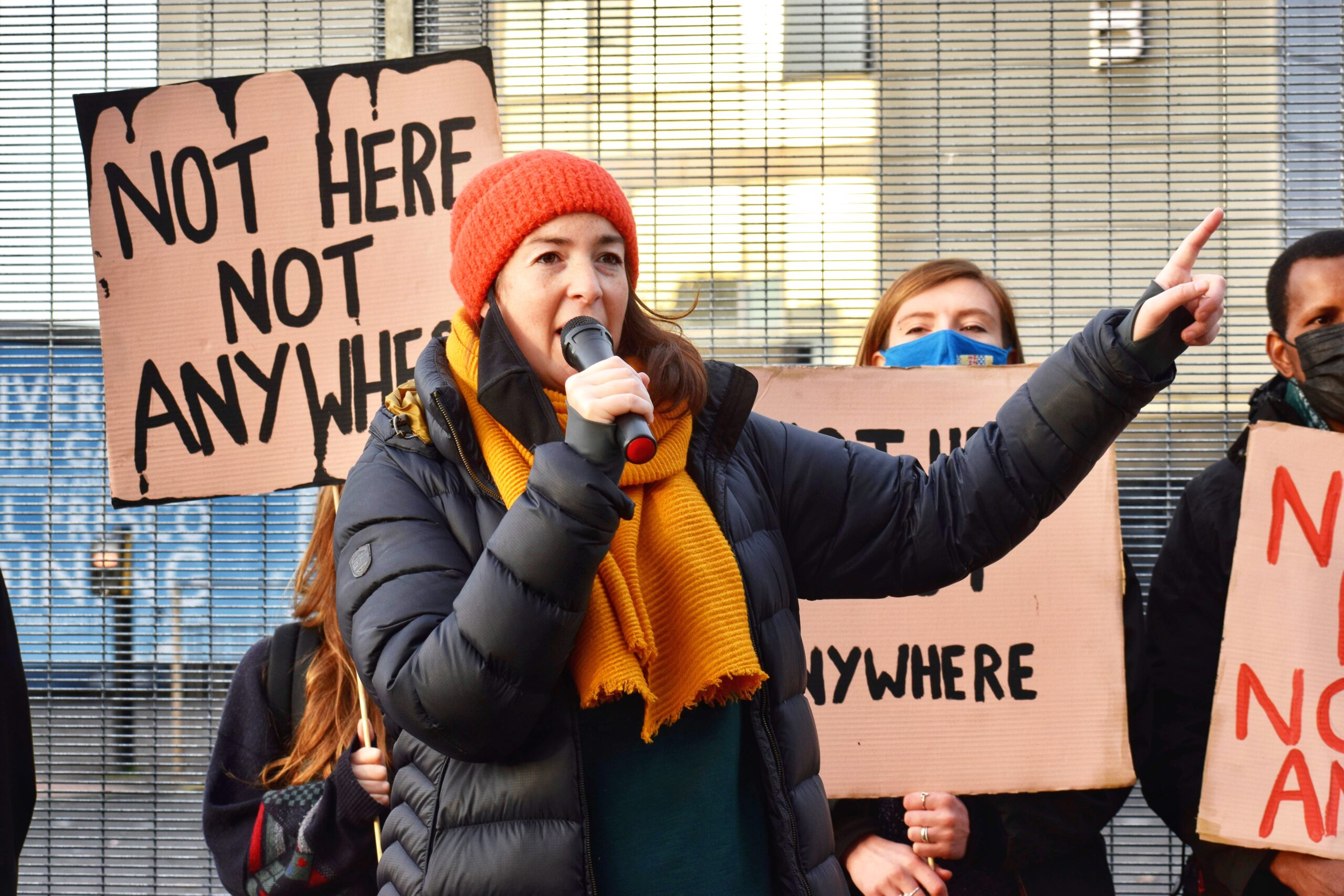
Visiting Friends of the Earth Finland
Juliet Swann and I took a trip to Finland last week to assist Friends of the Earth Finland in their campaign for a national climate law.
Maan Ystavat (Friends of the Earth Finland) is an incredible group of volunteers – they have one part-time member of staff. They’ve done a huge amount of work on their climate campaign so far:
- They held a successful mass lobby
- commissioned a Stockholm Environment Institute report outlining Finland’s route to 40% emissions cuts by 2020
- and held a 4,000 strong ‘human flood’
They currently have 64 out of 200 MPs signed up in support of the climate law.
We took part in an activists’ training weekend where myself and Juliet made presentations about the Scottish Climate Change Act as well as the campaign we ran to help secure it. Activists’ feedback on the Scottish input was very positive: they really appreciated having a concrete example of a successful campaign, and the fact that we stayed with them for the whole
weekend helped demonstrate that we are just normal activists like them who had managed to achieve their campaign aim.
As well as speaking to their activists we met politicians from the Greens and the Left Alliance. Both meetings were productive. The Greens, who are in government, were rather poker faced but seemed to be particularly interested in the carbon assessment of the budget. The Left were perhaps more receptive and keen to highlight the positive benefits of climate action.
Despite Maan Ystavat’s excellent campaign thus far, there are a number of political and practical difficulties that make a climate law difficult or unlikely.
First of all, in terms of Maan Ystavat’s demand for 40% emissions cuts by 2020, we should acknowledge that this is actually a lot trickier than Scotland’s 42%. This is because the targets are set against a 1990 baseline. While Scotland’s emissions had already fallen significantly between 1990 and the time our law was introduced, Finland’s emissions have been relatively stable. So, unlike Scotland where 42% actually now means 21%, for the Finns, 40% means 40%.
Finland is also a big manufacturing exporter, being dubbed the ‘China of Europe’. Given that the Finnish economy is structured on exports, there are strong economic pressures against a climate law. At an EU level, Finland, like many of the Eastern European states, are opposed to a shift from 20% to 30%.
Politically, the centre-right are increasingly popular and it is widely expected they will be in Government following elections in April. They currently have 51 seats (out of 200) and only one of them supports a climate law. The centre agrarian party currently hold 50 seats and are lukewarm about a climate law. The Social Democrats are likely to support a climate law but only hold 45 seats and are expected to decrease. The Left Alliance (17 seats) are expected to fall and although the Greens (14 seats) are expected to increase, this is likely to be offset by the far right True Finns (6 seats) who are expected to make significant gains. Overall the probability of a good climate law outcome from the April election is low.
Reflecting on this, I guess we have to admit to some extent we were lucky in Scotland. All the parties in the Scottish Parliament supported a climate law. In addition, the arithmetic of the Parliament gave us the opportunity to work with opposition parties in pushing the minority Government further than it might otherwise have gone.
On the other hand, perhaps we’re still having the same arguments, just further down the line. Parliament recently debated the Government’s ‘Report on Proposals and Policies‘ (RPP)to meet its climate targets. This is basically its climate action plan for the next 12 years. While a serious document, the plan lacks ambition, relies heavily on action at an UK and EU level and favours a voluntary approach over regulation. Indeed the Parliamentary debate on the RPP reflected a lack of recognition from Government, and unsurprisingly the Conservatives, that a voluntary approach is unlikely to deliver. Perhaps they should read the recent UK Department for Energy and Climate Change report, ‘Communicating climate change to mass public audience’, which states:
‘Be honest about the limitations of voluntary private-sphere behavioural change, and the need for ambitious new policy interventions that incentivise
such changes, or that regulate for them. People know that the scope they have, as individuals, to help meet the challenge of climate change is extremely limited. For many people, it is perfectly sensible to continue to adopt high-carbon lifestyle choices whilst simultaneously being supportive of government interventions that would make those choices more difficult for everyone’ (clause 3a).
